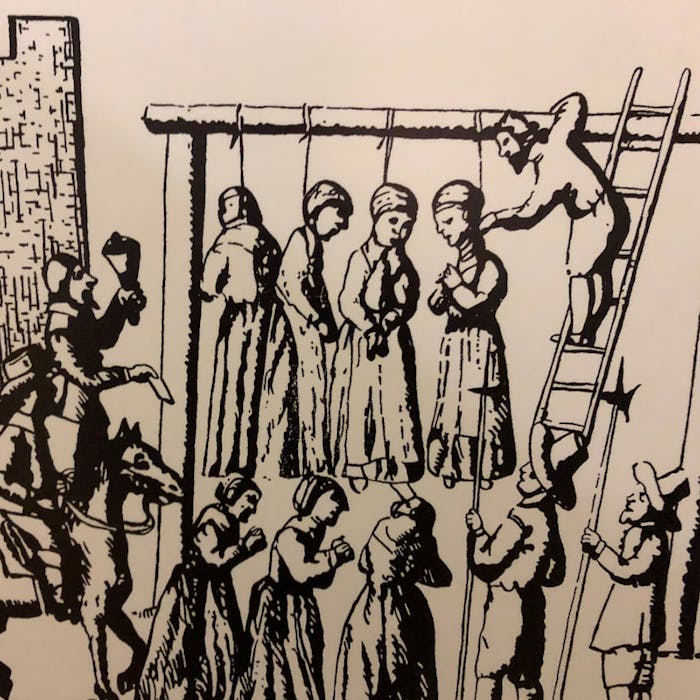
An infamous witch-hunt: the 1612 Pendle Witches Trial
The trial of the Pendle Witches is one of the most notorious witch trials of the 17th century. In 1612, twelve people in the Lancashire town were accused of witchcraft, with one dying in custody, and eleven going to trial. Ten were executed at Lancaster Castle.
Quite extensive details of the the trial have come down to us as it was unusually well-documented for the times in Thomas Potts' report 'The Wonderfull Discoverie of Witches in the Countie of Lancaster'.
A witch-hunting frenzy was taking place in Britain at the time, fuelled by King James I's suspicion of witchcraft. When he took the throne of England in 1603, James avidly pursued punishment of those thought guilty of practising magic, and was assisted in this by the man who would later be known as the Witchfinder General - Matthew Hopkins.
On March 18th, 1612, Alison Device was begging on a Lancashire road. She asked a passing pedlar John Law for a pin, and he refused. According to Alison's later confession, her 'familiar' spirit appeared to her, and asked if she wanted Law harmed. Alison acquiesced to the request. Immediately after, Law tripped and fell and became paralysed down one side.
Although Law forgave Alison, his son took matters into his own hands - reporting the incident to Roger Nowell, the local magistrate. Nowell began to make many arrests, and by the end of April, nineteen people were detained at Lancaster Castle, awaiting trial at the August Assize.
One of the most notorious suspected witches had died in prison at Lancaster before coming to trial. Elizabeth Southernes ("Old Demdike") had before this apparently admitted to Nowell that she was a witch - implicating many of her co-accused associates by doing so.
At the trial, the key witness against Alison Device was the still-crippled John Law. She again begged him for forgiveness, which he again gave, and this moved the court to request she restore him to health via witchcraft. Alison said she was not powerful enough, but that Old Demdike could have - were she still alive.
Under the terms of the 1604 Witchcraft Act, the accused were found guilty of crimes punishable by death. On August 20th 1612, the ten prisoners were hanged in the moors above Lancaster - at a site now known as Gallows Hill.
Further reading
Links to external websites are not maintained by Bite Sized Britain. They are provided to give users access to additional information. Bite Sized Britain is not responsible for the content of these external websites.
